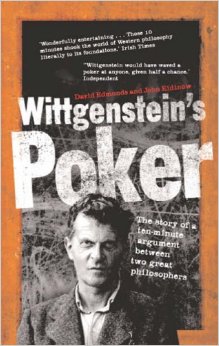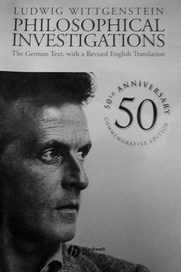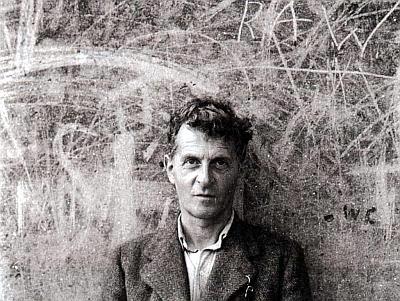
As Kain says; Wittgenstein only published one work during his lifetime, Tractatus in 1921 and other than that we have some 20,000 pages of notes and abstracts. So he did not "officially" write a great deal - however he was inspirational to others who took on his ideas and so are “Wittgensteinian” in their philosophy.
One of the main themes of Tractatus, as set out in the introduction was the idea that “What can be said at all can be said clearly; and whereof one cannot speak thereof one must be silent.” (Page 23). So it was that Wittgenstein initially asserted that the only language with meaning was the language of science, language that referred to empirical reality, language that mirrored the world as sensed. He based his ideas of Gottlob Frege and Bertrand Russell and influenced members of the Vienna Circle in the 1920 and especially AJ Ayer who went on to propose the Verification Principle. This is Wittgenstein’s first major area of influence as he set off the debate about the purpose of language and the meaninglessness of Religious Language.

In Philosophical Investigations he proposed that language is always bound by the context in which it is spoken/written and that philosophical problems arise when language is forced from its proper home into a metaphysical environment, where all the familiar and necessary landmarks and contextual clues are removed. This is often called the theory of “language games”, which he arrived at (supposedly) after having attended a football match. Wittgenstein observed that just like games such as football and Rugby, language operates according to rules. Just as football players understand the offside trap and Rugby players understand rucks and mauls, so religious people understand the language of religion. Not only this, but Wittgenstein said that language has a meaning for the people in those particular language games (or contexts of use).

People who follow the coherence theory are often called pragmatists and reject something called the correspondence theory of truth, which states that language is only meaningful if it directly corresponds to facts about the world, that is, language should mirror life. Wittgenstein and the pragmatists (or New Wittgensteinians) that followed him were more interested in how language was used as a way of judging its meaning, rather than looking at what it corresponds to or mirrors. Wittgenstein influenced thinkers to be confident that there was meaning to religious or moral language and so allowed Philosophy to continue to develop these discussions over the next 65 years.
Wittgenstein may be famous predominantly due to his interesting life and not as important conceptually as other thinkers of his era, however he did play a very important role in inspiring debate about the meaningfulness of religious language and then helping the subject to move on afterwards. He died in 1951 aged 62 and influenced many others such as Bertrand Russell, G.E. Moore, Rudolf Carnap, Alan Turing, G.E.M. Anscombe, Peter Geach, Anthony Kenny, Gilbert Ryle, and John Searle.



 RSS Feed
RSS Feed
